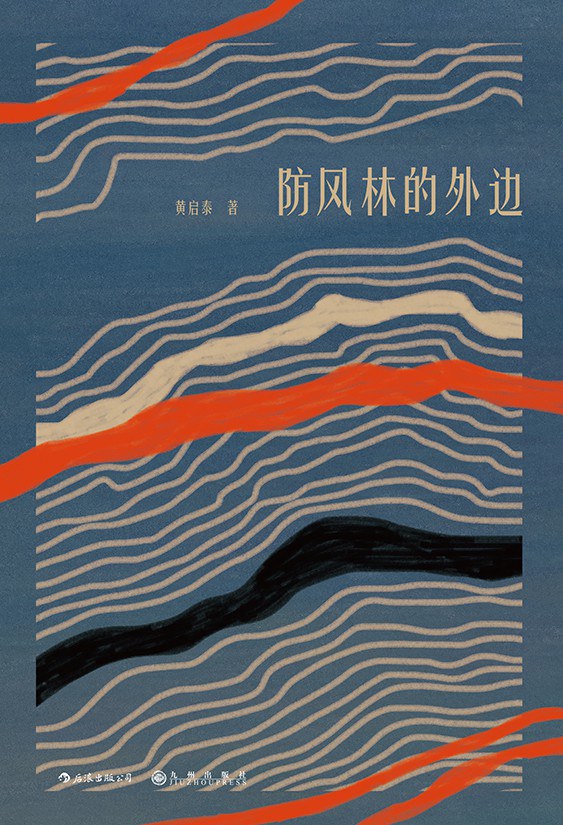1
/
of
1
Outside the windbreak
Outside the windbreak
Huang Qitai
Regular price
$13.99 USD
Regular price
$13.99 USD
Sale price
$13.99 USD
Unit price
/
per
Low stock
Couldn't load pickup availability
About Book
About Book
A Taiwanese literary classic highly praised by Huang Jinshu, Yan Shuxia, and Lin Yaode, it has been republished after a thirty-year hiatus. A fragmented and mixed consciousness, a multiplying and disappearing self. Huang Qitai, an explorer of the black hole of the mind, presents a fragmented image of the human mind.
.
.
Editor's recommendation☆ Huang Qitai is called "the explorer of the black hole of the soul" by writer Yang Liling. His works focus on human inner feelings and consciousness; with precise structure and analytical language, his novels are like a calm gaze in the gaps of dense forests, secretly leaving traces of the cross-section of the soul.
Lin Yaode once recommended Huang Qitai as a promising "new generation" of authors, leading to the publication of "Outside the Windbreak" in 1990. This reprint includes additional unpublished chapters and features introductions by Huang Jinshu and Yan Shuxia, offering a comprehensive analysis of Huang Qitai's work from various perspectives, including "the introverted generation" and "meta-fiction."
☆ An exquisite postcard will be made to accompany the book, combining image design with text excerpts. Four exclusive styles will be randomly given away for readers to use and collect.
.
.
Introduction:
Standing in a windbreak, Huang Qitai gazed at the scenery outside, channeling his inner feelings into 11 novels, reflecting episodes of gender inversion, conflicting desires, and schizophrenia. By employing metaphysical forms and grounding his stories on the border between subjective imagination and objective reality, these works imbue themselves with a unique atmosphere. This unique collection of short stories is also a text on the brink of extinction. Fiction and reality intertwine, characters and creators infringe upon each other, everything seems to be in a precarious state of self-preservation. But ultimately, as the text approaches the limit of collapse, the novelist, at the impossible end of the psyche, summons the most primal aspect of "writing."
.
.
Celebrity recommendation☆ Huang Qitai established his writing style with a small number of high-quality psychological novels. Gender and role identity issues appear in subtle observations and descriptions in his writing style full of magical and dreamlike colors.
—Lin Yaode (Taiwanese writer)
☆ In Huang Qitai's early writings, the possibility of writing and the possibility of expression are more closely linked to the possibility of existence than his contemporaries, and there is a powerful drive to approach the impossible.
——Huang Jinshu (Malaysian Chinese literature writer)
☆ Huang Qitai's novels transcend the boundaries of windbreaks linked by meaning, go beyond the text, and show a self-contemplation of writing itself.
——Yan Shuxia (Taiwanese essayist)
☆ Huang Qitai's novels are characterized by increasingly cool, sharp and quiet language and a formal design that flows with the chaotic flow of consciousness. Every trace of his novel attempts to touch the secluded corner of the human mind.
——Yang Liling (Taiwanese writer)
.
.
Editor's recommendation☆ Huang Qitai is called "the explorer of the black hole of the soul" by writer Yang Liling. His works focus on human inner feelings and consciousness; with precise structure and analytical language, his novels are like a calm gaze in the gaps of dense forests, secretly leaving traces of the cross-section of the soul.
Lin Yaode once recommended Huang Qitai as a promising "new generation" of authors, leading to the publication of "Outside the Windbreak" in 1990. This reprint includes additional unpublished chapters and features introductions by Huang Jinshu and Yan Shuxia, offering a comprehensive analysis of Huang Qitai's work from various perspectives, including "the introverted generation" and "meta-fiction."
☆ An exquisite postcard will be made to accompany the book, combining image design with text excerpts. Four exclusive styles will be randomly given away for readers to use and collect.
.
.
Introduction:
Standing in a windbreak, Huang Qitai gazed at the scenery outside, channeling his inner feelings into 11 novels, reflecting episodes of gender inversion, conflicting desires, and schizophrenia. By employing metaphysical forms and grounding his stories on the border between subjective imagination and objective reality, these works imbue themselves with a unique atmosphere. This unique collection of short stories is also a text on the brink of extinction. Fiction and reality intertwine, characters and creators infringe upon each other, everything seems to be in a precarious state of self-preservation. But ultimately, as the text approaches the limit of collapse, the novelist, at the impossible end of the psyche, summons the most primal aspect of "writing."
.
.
Celebrity recommendation☆ Huang Qitai established his writing style with a small number of high-quality psychological novels. Gender and role identity issues appear in subtle observations and descriptions in his writing style full of magical and dreamlike colors.
—Lin Yaode (Taiwanese writer)
☆ In Huang Qitai's early writings, the possibility of writing and the possibility of expression are more closely linked to the possibility of existence than his contemporaries, and there is a powerful drive to approach the impossible.
——Huang Jinshu (Malaysian Chinese literature writer)
☆ Huang Qitai's novels transcend the boundaries of windbreaks linked by meaning, go beyond the text, and show a self-contemplation of writing itself.
——Yan Shuxia (Taiwanese essayist)
☆ Huang Qitai's novels are characterized by increasingly cool, sharp and quiet language and a formal design that flows with the chaotic flow of consciousness. Every trace of his novel attempts to touch the secluded corner of the human mind.
——Yang Liling (Taiwanese writer)
Publication Date
Publication Date
2020-10-01
Publisher
Publisher
九州出版社
Imprint
Imprint
Houlang, Houlang Literature
Pages
Pages
264
ISBN
ISBN
9787510893735
share

